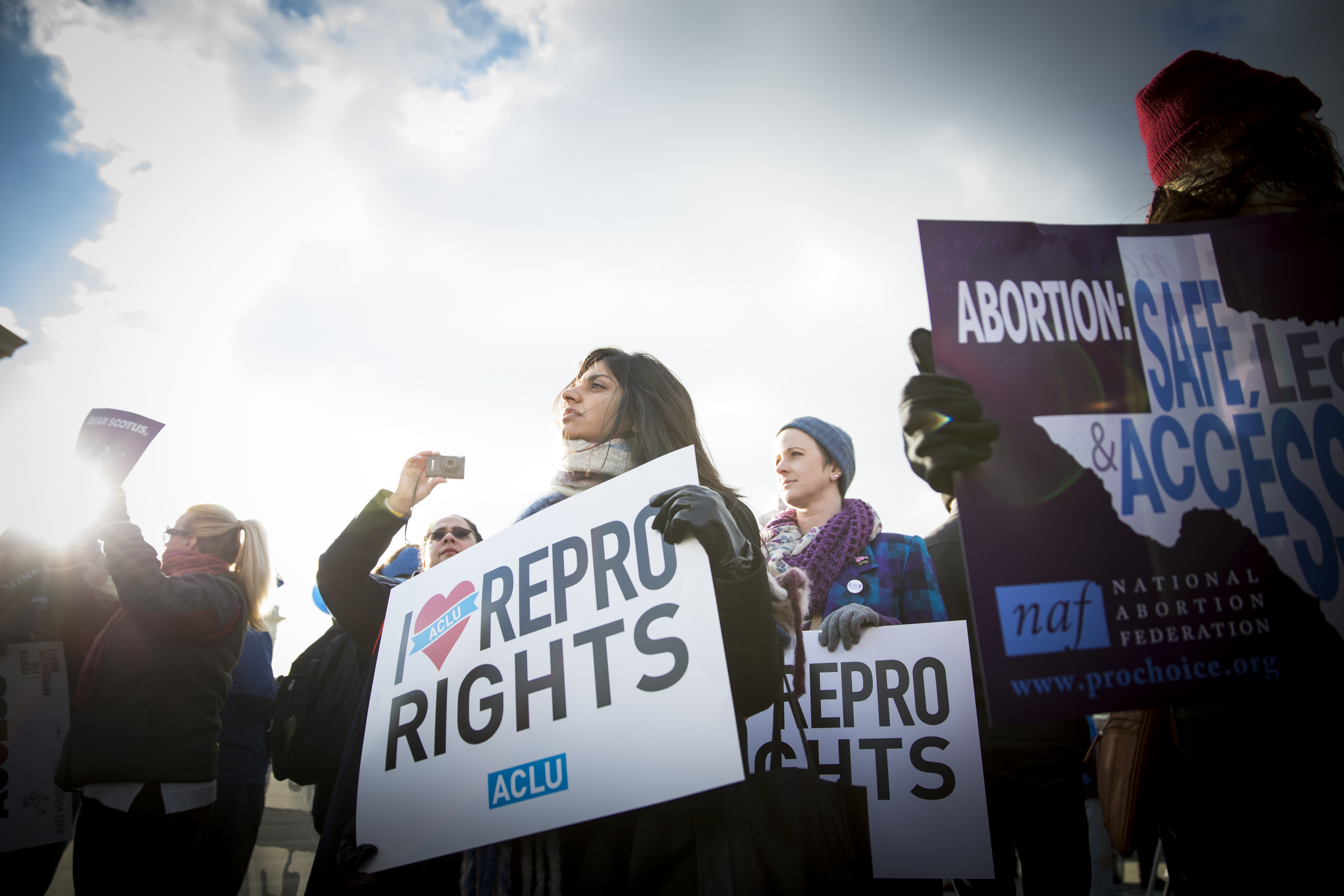NYCLU, Legal Aid Secure over $500k Settlement for Clients Brutalized by NYPD During the Demonstrations Protesting Police Violence in 2020
Civil Liberties Union

The New York Civil Liberties Union today joined the National Institute for Reproductive Health, Planned Parenthood Empire State Acts and affected New Yorkers in a series of demonstrations at the New York State Capitol with the demand that Senate leadership immediately bring to a floor vote legislation protecting access to abortion and affordable contraception. Demonstrators called for the Comprehensive Contraception Coverage Act (S3668 Bonacic, A1378 Cahill) and the Reproductive Health Act (S2796 Krueger, A1748 Glick).
Signifying the absurdity of legislators making medical decisions for women, demonstrators marched to the Capitol building in hospital gowns. After arriving at the Capitol, they walked the halls distributing flyers and displaying signs that decried the State Senate and Majority Leader John Flanagan for effectively playing doctor. The groups and demonstrators then held a rally outside Senate Chambers expressing alarm at the gaps in state law and the threat to reproductive rights from Washington, and insisted that New York lead the nation on reproductive rights.
“For over four decades New York’s law has lagged behind Roe v. Wade, and the time has more than come to set things right,” said NYCLU Executive Director Donna Lieberman. “With the Trump administration posing the greatest threat to reproductive rights in recent memory, the State Senate can’t afford to kick women’s rights down the road any longer. The people of New York expect our leaders to stand for a strong, equal and open New York. We can’t be that state without the CCCA and RHA.”
The demonstrations warned that legislation is urgently needed in the face of President Trump’s agenda. The administration is focused on decimating the Affordable Care Act and regulations that guarantee contraception coverage. The president has expanded the Global Gag Rule and stated a desire to defund Planned Parenthood, see Roe reversed, and allow the legality of abortion to instead be decided by individual states.
New York has a legacy of protecting women’s health and rights, but the state has lagged in recent years. New York was one of the first states to legalize abortion care in 1970, three years before the Roe decision. But it has not updated its abortion law since. Prior attempts to pass the RHA and CCCA in New York stalled while other states enacted similar legislation. Both bills now remain in senate committees.
“The federal government is trying, as we speak, to roll back birth control and abortion access, and yet the New York Senate leadership has still refused to act on the Reproductive Health Act and the Comprehensive Contraception Coverage Act,” said Andrea Miller, president of the National Institute for Reproductive Health. “Their inaction sends a clear message: they think it’s good medicine and good public policy to make women leave New York for the critical care they need, and that we shouldn’t be able to manage our own birth control. They think they know better than medical experts and women themselves, and they couldn’t be more wrong.”
The CCCA requires insurers to cover contraception without a co-payment. Since contraception requires both access and consistency to be effective, the CCCA allows for a 12-month supply at a time. While emergency contraception already is available in pharmacies over the counter, the CCCA improves timely access by allowing insurance to cover it without an appointment with a health care provider. A number of states – California, Illinois, Maryland, Vermont and Virginia – already have strengthened the federal requirements of the Affordable Care Act through similar contraceptive equity bills.
The RHA codifies the protections of Roe v. Wade in state law. Acknowledging that abortion care is health care, it removes the regulation of abortion from the criminal code and places it in the public health law. In accordance with Roe, the RHA ends New York’s criminalization of abortion later in pregnancy when a woman’s health is at risk or when a fetus is not viable. The RHA also clarifies that trained and qualified advance practice clinicians, within their scope of practice, can provide early and safe abortion care.
“It’s time for the Senate to act, no more excuses. The Comprehensive Contraception Coverage Act and the Reproductive Health Act ensure that essential reproductive health care is within reach for all New Yorkers,” said Robin Chappelle Golston, President and CEO of Planned Parenthood New York State Acts. “As threats of federal rollbacks continue to imperil the progress we’ve made towards a healthier New York, we need the Senate to act now more than ever.”